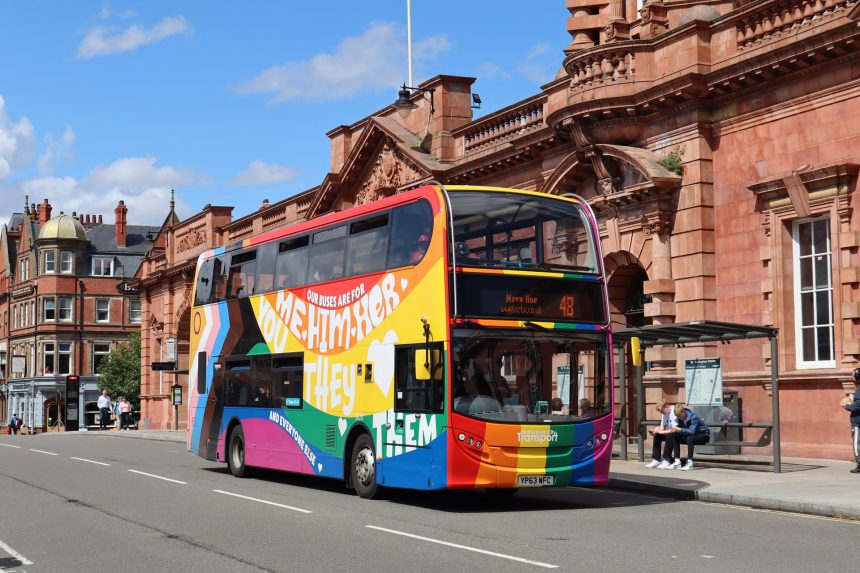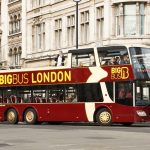Strengthening guidance for local authorities (LAs) to ensure that bus lanes operate only “when necessary” forms part of government efforts to mitigate what it calls “anti-car measures” that were announced in a ‘plan for motorists’ on Friday 29 September.
Publication of such policy had been expected, with multiple industry stakeholders including the Confederation of Passenger Transport (CPT) and Bus Users UK issuing pre-emptive critical statements.
In addition to underscoring guidance to LAs around bus lane operation, the Department for Transport (DfT) says that a consultation on motorcycles using those lanes will be launched. Further details and what DfT calls “the full plan” are due over coming days, which capture the Conservative party conference in Manchester.
‘Plan for motorists’ contradicts National Bus Strategy?
The language around bus lanes appears to contradict policy laid down during 2021 in the National Bus Strategy (NBS) for England. That document outlines on p8 a desire from government to see “the same increases in bus priority measures” provincially as have been implemented in London.
Multiple Bus Service Improvement Plan funding awards were subsequently made against expanded bus priority. On p13, the NBS describes “the key intervention” for increasing bus patronage as being “significantly more ambitious bus priority schemes.”
Such an approach now appears to have been cast to the wind. In hyperbole that follows similar when earlier announcing a watering down of net-zero plans, Prime Minister Rishi Sunak says that politicians have “for too long… focused on the short-term decisions with little regard for the long-term impact on hardworking families.”
Mr Sunak adds that such an approach has been employed “consistently with people’s freedoms on transport.” He believes that a perceived clamp-down on drivers “is an attack on the day-to-day lives of most people across the UK who rely on cars to get to work or see their families.”
In further populist talk, Mr Sunak says that the ‘plan for motorists’ to be outlined during week commencing 2 October will represent a long-term approach “to back drivers.” The work will push back against what he describes as “anti-car measures across England.”
But buses in England to gain funding at expense of HS2?
Secretary of State for Transport Mark Harper has echoed Mr Sunak. Mr Harper says the policy shift will enable easier parking and remove “unfair and oppressive traffic enforcement measures.” However, he adds that the work will sit alongside “continued investment in public transport and active travel as part of a package of measures designed to help people travel in the best way that works for them.”
Mainstream reports over the weekend of 30 September and 1 October suggested that Mr Sunak could be about to announce a £700 million investment package for buses in England outside London that includes an expansion of franchising powers for LAs. Funding for bus priority could also form part of that, despite the language used in the ‘plan for motorists’.
A review of 20mph speed limits and low traffic neighbourhoods additionally form part of the plans. In a brighter note for coach and bus, DfT will support more LAs in the introduction of lane rental schemes for utility works, along with clamping down on overrunning roadworks.
CPT describes the plans around bus priority limitation as “a backward step.” Bus Users UK was more forthright. Chief Executive Claire Walters says: “It is astonishing that the government should be considering such a regressive move given the growing and urgent need for more sustainable transport.”



























